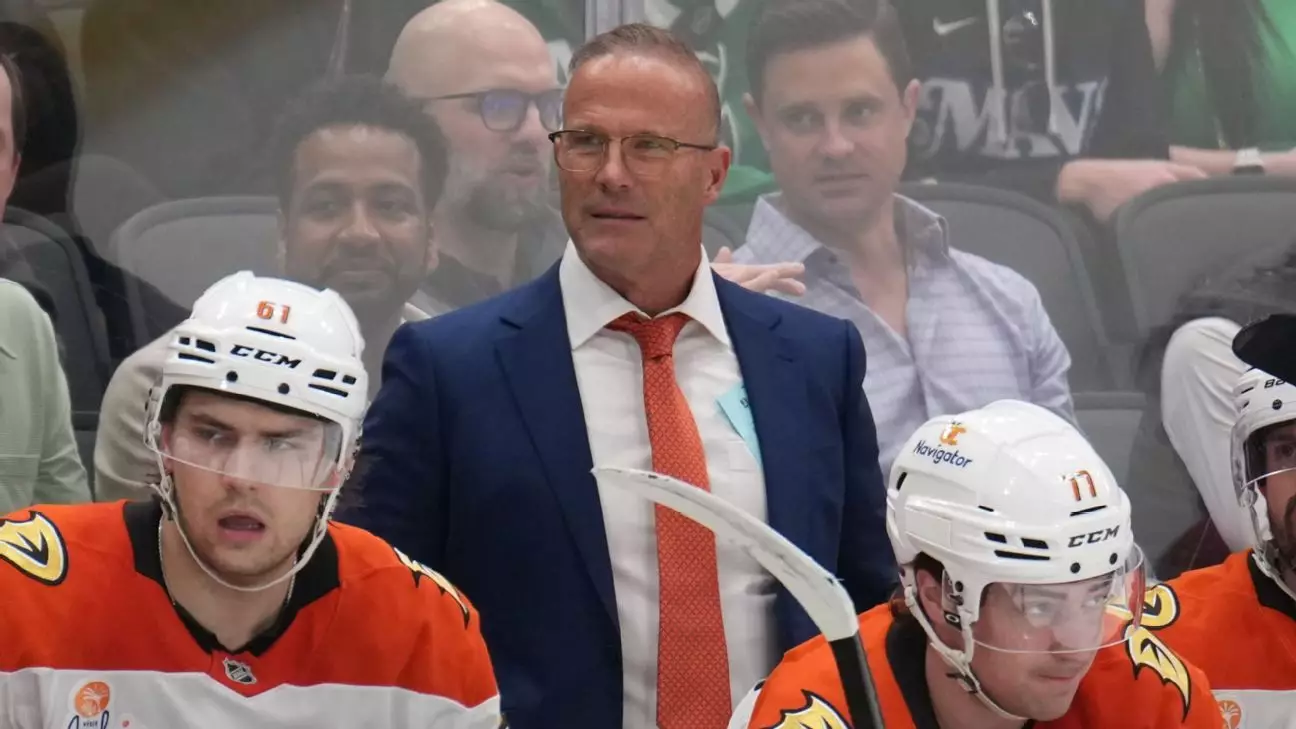Transformative Shifts: The Anaheim Ducks Seek New Direction
There’s something about hockey that stirs the soul, isn’t there? It’s not just the thrill of watching a puck whizz across the ice or the exhilaration of a well-timed goal. It’s the stories—the ebbs and flows of a team as they navigate the highs and lows of a season. And for fans of the Anaheim Ducks, this latest chapter is one of transformation and hope. As someone who’s followed their journey closely, I find myself both excited and anxious to see where this new direction takes them.
Recently, the Ducks made headlines with a bold decision that could reshape their future. Head coach Greg Cronin will not be returning next season, marking a significant shift in leadership. Now, I know what you’re thinking—change can be daunting, especially after Cronin’s efforts to elevate a struggling team. Yet, sometimes it’s these very shifts that lay the groundwork for something extraordinary. So let’s dive into what this means for the Ducks and their loyal fans.
Key Takeaways
- Greg Cronin’s departure signals a pivotal moment for the Anaheim Ducks as they seek fresh leadership.
- The focus is on finding innovative strategies to boost team performance and morale.
- The upcoming coaching changes are crucial for harnessing young talent and achieving playoff contention.
A Mixed Legacy: Progress Without Outcomes
Cronin’s legacy with the Ducks is indeed a mixed bag. He came on board with high hopes of revitalizing a team that had seen better days. And while there were glimpses of promise—such as the development of young core players—the results didn’t quite hit the mark. Under his guidance, the Ducks showed some improvement but remained outside playoff contention. This decision to seek new leadership reflects management’s ambition to rise above mediocrity and reclaim their place among Stanley Cup contenders.

General Manager Pat Verbeek has acknowledged Cronin’s contributions, particularly in nurturing young talent and instilling a solid work ethic within the team. However, it’s clear that more than just potential is needed; tangible success must follow. The Ducks’ defensive struggles and offensive woes under Cronin’s tenure underscore the complexity of coaching in professional sports. It’s about finding that elusive balance between developing talent and achieving winning outcomes—a challenge that requires fresh perspectives.
The Crux of Coaching Decisions
The abrupt nature of Cronin’s departure highlights the high-stakes world of professional hockey coaching. Reports suggest that even Cronin himself was taken aback by the decision after discussions with Verbeek. When teams don’t meet expectations, tensions inevitably rise—both from management and fans alike. Criticism often centers on coaching strategies, such as player development decisions or lack of playing time for promising talents like Trevor Zegras.
This scrutiny reveals an underlying issue: how to best utilize emerging players while still aiming for immediate results. Critics argue that Cronin’s handling of player rotations may have hindered long-term growth, particularly in capitalizing on the potential within young talents. In hockey, youth dynamism is key; unfortunately, it seems the Ducks missed opportunities to fully embrace this advantage during Cronin’s tenure.
Looking Ahead: A New Era
With Cronin’s exit, Anaheim faces crucial decisions about who will lead them forward. Verbeek has emphasized the need for a “new voice,” suggesting a shift towards innovative strategies that could reinvigorate team dynamics. Finding the right coach is vital—not only to build upon previous improvements but to address ongoing challenges such as offensive efficiency and defensive stability.
Verbeek’s optimism about next season underscores this critical juncture for the Ducks—a chance for revival and renewed purpose. Bringing in someone capable of managing both seasoned veterans and emerging stars like Leo Carlsson and Mason McTavish will be essential for sustainable success. This transition period offers an opportunity to redefine what it means to be an Anaheim Duck—to not merely compete but thrive in today’s NHL landscape.

Final Thoughts
As we look forward to this new era for the Anaheim Ducks, there’s an undeniable sense of anticipation in the air. Change isn’t always easy, especially when it involves beloved figures like Greg Cronin who have contributed significantly to shaping team culture. Yet embracing these transformative shifts can pave pathways toward greatness—something every fan dreams about when rallying behind their favorite team.
The coming months will be telling; they’ll define not just immediate outcomes but set foundational elements influencing future seasons too! With thoughtful leadership steering these changes alongside strategic planning aimed at fostering success both on & off ice—it seems promising times lie ahead indeed! Here’s hoping those dreams turn into tangible victories soon enough!
Anaheim Ducks NHL coaching changes sports management team strategy


Leave a Reply